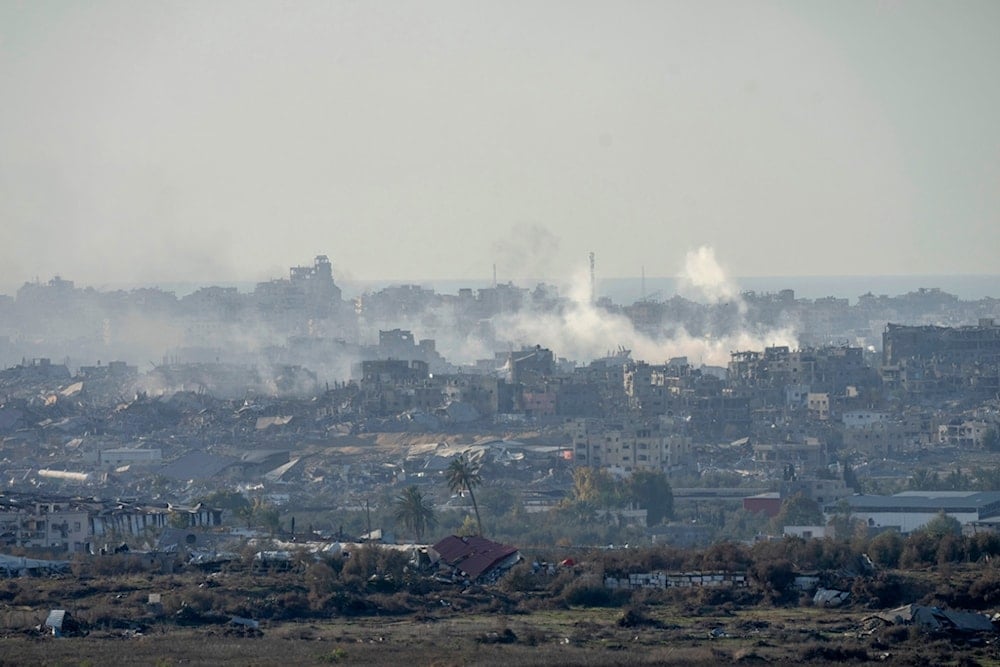Israeli forces acknowledge Gaza ops influenced killing of six captives
The captives were found dead in an underground shaft in Rafah shortly after Israeli forces arrived in the area.
-

Smoke rises following an explosion in the Gaza Strip as seen from southern Palestine, Wednesday, December 18, 2024. (AP)
The Israeli Occupation Forces (IOF) stated on Tuesday that their military actions in southern Gaza in late August likely influenced Hamas' decision to kill six captives.
The captives were found dead in an underground shaft in Rafah shortly after Israeli forces arrived in the area.
The IOF's investigation concluded that the six were "murdered by gunfire from Hamas" while Israeli troops operated near Tal al-Sultan.
The statement added, "Ground activities in the area, although gradual and cautious, had a circumstantial influence on the terrorists' decision to murder the six hostages."
At the time, Prime Minister Benjamin Netanyahu described the killings as executions, stating they were shot "to the head."
The so-called Hostages and Missing Families Forum urged decisive action to rescue all remaining captives.
"The time has come to bring back all the hostages. We need a deal that will ensure the return of all hostages within a quick and predetermined timeframe," the group said.
Read more: 'Israel' admits deputy commander of company, soldiers killed in Gaza
In September, the Forum said the captives' death was the "direct result" of Netanyahu’s "torpedoing" of the ceasefire negotiations and his insistence on the Israeli military's presence in the Philadelphi Corridor in the Gaza Strip.
The group pointed out that, over the past months, eight captives were retrieved alive in military operations, compared to the 105 who were released in November as part of a deal with the Resistance in exchange for Palestinian detainees.
Gaza ceasefire talks progress
Reuters on Monday reported that gaps between "Israel" and Hamas over a potential ceasefire in Gaza have narrowed, though significant issues remain unresolved. Efforts by mediators from Egypt, Qatar, and the US to broker a truce have gained traction in recent weeks, but no major breakthroughs have been announced.
A Palestinian official involved in the discussions revealed that while some contentious points had been addressed, disagreements persist over the list of Palestinian prisoners to be freed by "Israel" and the future positioning of Israeli troops within Gaza.
Israeli Diaspora Minister Amichai Chikli echoed these concerns, stating that the two sides are closer to an agreement than they have been in months but mentioned that unresolved issues could determine the success or longevity of any truce.
"This ceasefire can last six months or it can last 10 years, it depends on the dynamics that will form on the ground," Chikli told Israeli radio. He added that much depends on determining who will oversee Gaza's governance and reconstruction post-conflict. The duration of the ceasefire remains a sticking point, with Hamas seeking a complete end to hostilities while "Israel" demands an end to Hamas' control of Gaza as a precondition.
Chikli noted that the ceasefire would begin with a humanitarian phase lasting 42 days, during which captives would be released. Israeli Minister Zeev Elkin suggested that a second stage of negotiations would address the broader conflict resolution framework.

 3 Min Read
3 Min Read








